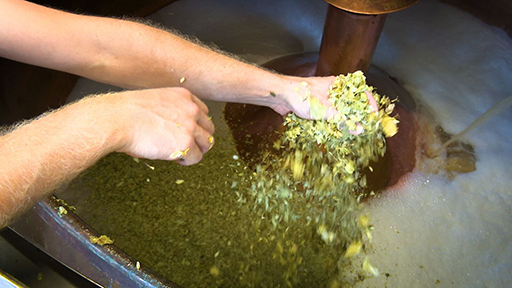2.3 Boiling
Once in the copper kettle, the wort is boiled in the presence of hops (Figure 12).
What is the significance of the hops in the brewing process?
The hops are responsible for imparting flavour, aroma and bitterness to the finished beer.
The hops are added to the copper kettle along with the wort, and the mixture is boiled for around an hour. As you saw in Section 1, different hops have different properties which means that the addition of the hops at varying points in the boil process must be carefully managed in order to control the properties of the finished beer. Sometimes other ingredients such as herbs or sugars may be added at this stage depending on the final beer being produced.
During boiling, the enzyme activity is terminated, proteins are precipitated (deposited in a solid form from the solution), and hop acids isomerised.
Can you define the process of isomerism?
During isomerism one substance is converted into another substance that has the same numbers of constituent atoms but a different three-dimensional arrangement of these atoms. An example of this would be the conversion of the hop humulone into iso-humulone.

